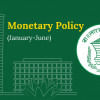Inflation eases but stays above 9%

Inflation eased in December but remained at more than 9 percent for the 10th straight month as prices of goods and services shows no signs of falling, straining the purchasing power of consumers.
Last month, the Consumer Price Index (CPI), which measures changes over time in the prices paid by consumers, climbed 9.41 percent compared with 9.49 percent the previous month, according to data released yesterday by the Bangladesh Bureau of Statistics (BBS).
The slight decrease might be attributed to the arrival of winter vegetables as well as some impacts of the contractionary monetary policy.
Since March 2023, inflation has persisted above 9 percent. This year, May witnessed the sharpest jump in consumer prices at 9.94 percent, data from the statistical agency showed.
Food inflation has continued its downward trend while non-food inflation rose slightly. Food inflation rose 9.58 percent in December against 10.76 percent in November.
Non-food inflation increased to 8.52 percent from 8.16 percent.
"The easing of food inflation at this time is not surprising since December is the month when all winter crops are harvested," said Zahid Hussain, a former lead economist of the World Bank's Dhaka office.
"So, the price of food has not fallen. Rather, the rate of price increase has slowed down. It's entirely a supply-side factor."
As the non-food price is increasing, it means the underlying inflationary trends are still stronger, he points out.
"The easing of inflation is a good sign, but it is still high," said Fahmida Khatun, executive director at the Centre for Policy Dialogue, a think-tank.
She credited the changes in the monetary policy for the lowering of inflation to some extent.
Among notable initiatives, the central bank has raised the benchmark policy rate eight times in the past 20 months, scrapped the ceiling on the lending rate after more than three years, and introduced a new rate-setting mechanism.
Fahmida says seasonal factors like an adequate supply of winter vegetables may have contributed to the deceleration of consumer prices.
Mustafa K Mujeri, executive director of the Institute for Inclusive Finance and Development, also thinks the higher food supply in the winter season was behind the slight decline in inflation.
He, however, says had the monetary policy worked properly, inflation would have declined to a large extent, especially non-food inflation.
A former chief economist of the central bank, Mujeri thinks supportive management from the commerce ministry and other concerned ministries is key to keeping the supply system smooth.
Fahmida says until inflation reaches the targeted level, the central bank should keep raising interest rates even if the economic growth slows temporarily.
The central bank has targeted a 6 percent inflation growth for the current financial year, which ends in June, against 9.02 percent a year earlier.
"The monetary policy can't tame higher inflation alone. This is because if the fiscal policy becomes expansionary, the contractionary monetary policy may not work properly."
The CPD's executive director gave the example of rising public spending while discussing the expansionary fiscal policy.
"If public expenditures remain high in the form of unnecessary cost-overrun of projects and operating costs, the fiscal policy does not remain contractionary."
She also blamed the weak market management for the higher prices and urged the government to pay heed to the fallout of the external factors, including the Red Sea turmoil, and the Russia-Ukraine war.
Zahid Hussain does not see any impact of the monetary policy in controlling inflation.
"However, it was not expected either because we have done too little too late."
He suggested keeping the upcoming monetary policy, likely to be unveiled on January 17, contractionary.
"The monetary policy should be kept tightened for a longer period. If necessary, the policy rate may be increased."

 For all latest news, follow The Daily Star's Google News channel.
For all latest news, follow The Daily Star's Google News channel. 








Comments